Above: At the height of the city of Eugene’s downtown urban renewal projects circa 1970, a young John Bauguess poses by a plywood cowboy that had been a fixture in the just-demolished Outdoor Store; the photo was taken by friend and fellow photographer Robert Wilson.
A previous profile of John Bauguess appeared in The Eugene Scene in Paul Carter’s “On Photography” column. It can be viewed at https://bit.ly/37vVocu
By Paul Carter
Late in December, I got a phone call from an old friend, John Bauguess. He was in a care facility in Eugene yet again, recuperating from another fall injury—he’d broken his hip at home and he still was far from recovered from a series of previous falls that required several knee reconstructions. He was exasperated by months spent in rehab facilities — all he could think about was going home to Dexter.
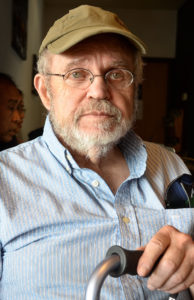
John Bauguess, pictured a few months before his death; photo by Paul Carter
John was “planning his escape” as he liked to say, and he wanted to visit the house to plot his return. The broken hip had been the result of a fall in the house; he pointed out the table in the living room that he had tripped over and vowed he would get rid of it. He wanted to make his house safer, and he was convinced he could find a caregiver who would move in with him to give him the care he knew he needed.
He shuffled behind his walker into every room. He listened to recorded messages on his phone and complained that he’d lost out on a freelance photo job because of a call he had missed.
He started a load of laundry and while we waited for it, he picked up a broom to sweep the kitchen floor. We looked through a stack of old black-and-white prints. Boxes of prints covered a table in the dining room. He had an entertaining story to go with every picture. I think he was getting tired, but he never sat down.
The man was happy. The house looked fine, and he had a plan.
Since last summer I had gotten used to these frequent requests to ferry John to a doctor’s office, or the DMV, or just out for coffee. And, of course, many trips required a stop at the Dairy Queen in Pleasant Hill for a hamburger.
The alert on my mobile phone on Friday morning, January 24, signaled a text from a mutual friend, Jack Liu. It was a shock. “John passed about 9:30 AM. Peaceful and quiet.”
A second hip fracture at a care center and cascading assaults on his fragile health — pneumonia and multiple organ failure — had caught up with John. The last fracture happened when he fell as he moved about his tiny respite-care room packing clothes to move out, though he really didn’t know when and how he could make it happen.
John was 76. I really thought he would succeed in his mission to live out his life at home, to complete the circle in Dexter.
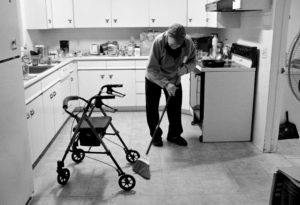
On his last visit to his home three weeks before his death, John Bauguess contented himself with small household chores such as sweeping the kitchen; photo by Paul Carter
John became a close friend mostly over the phone and because of our shared love of photography. I was working at The Register-Guard as a photo editor in my last years at the paper. John was a dedicated observer of politics and public affairs around Lane County. He usually wanted to alert me to the latest shenanigans at the Eugene City Council or the Dexter Sanitary District or Lane Community College, where he once worked as a part time photography instructor.
He was a confirmed conspiracy theorist, and he knew he could get me to tell some editor or reporter that the R-G urgently needed to do a story. I was a member of his unending network of friends all over Oregon.
There were so many, and they all have vivid memories of John’s caring and voluble and irascible personality. John was complicated, and he freely displayed his character from storminess to serene calm in equal measure.
Several of his closest friends agree with me that a significant chapter in his life was his decision to move back home to Dexter to live with his mother, Annette Bauguess. John stopped his work as a photo instructor to care for her for 23 years. She died in 2004 at age 94.
His father, Roy Bauguess, had died in March 1987.
John’s devotion to his mother and the importance of their Dexter home was the subject of an essay he wrote recently for a caseworker at Lane Council of Governments’ Senior & Disability Services. John gave his friend of many years, Marlitt Dellabough, his papers, including the letter.
In it, he reminisced: “Our dog Stomper kept us happy as we sat together for healthy breakfasts and strong coffee and watched birds flock in this year-round sanctuary. She especially loved the giant catalpa tree that I planted in the front yard when I was a little boy.”
Later in the hand-written letter, he wrote: “I had to give up my teaching job at Lane Community College, but I learned that taking care of Mom was the best ‘job’ of my life.”
She whispered her last words to her only son: “John, the birds have come.” As the sun began to darken behind winter clouds, she closed her eyes. Thirty large quail flocked around the pan of seed we had daily given them, John said. “Hers was a life well-lived.”
John Bauguess “wanted to die there also,” Dellabough said.
She and others agree that John had unusual talent. Dellabough is a
graphics designer in communications at the University of Oregon and worked with John frequently on photo assignments. “When you connected him with the right assignment, he was awesome,” she said. “He had a fantastic eye.”
George Beltran, who was director of the UO publications department for many years, agrees. “He had a good heart and a good heart for Oregon,” Beltran said. John was “very much an Oregonian.”
His photo essays on old-time fiddlers, migrant farm workers, urban renewal in Eugene, and the degradation of historic places and the rural environment are among the best documentary photography projects that have been done in the last 50 years in Oregon, in my opinion. I look at many of John’s pictures and wish I could have the presence of mind he showed in “seeing” those images.
Photographer Jack Liu connects John’s work to a long line of late 20th-century documentary photographers. John, he says, was a student of the work of Robert Frank, W. Eugene Smith, and Garry Winogrand. Like them, John often worked close to his subjects with a Leica M4 camera.
“John lived within the space of a wide-angle lens,” Liu said, describing how John got physically very close to his subjects, but still managed to put them at ease.
Another admirer, Rob Wilson, used to go on photo expeditions with John up the Willamette Valley and to the coast. Wilson now lives in New York City but still remembers the famous Bauguess temper. He recalls a story that once appeared in The Register-Guard, about a Eugene City Council meeting at which John made a blustery appearance. The story, Wilson said, quoted John and described him as “red-faced and shouting.”
I wish I had been there, covering the meeting for the paper. That would have been a picture worthy of the front page.
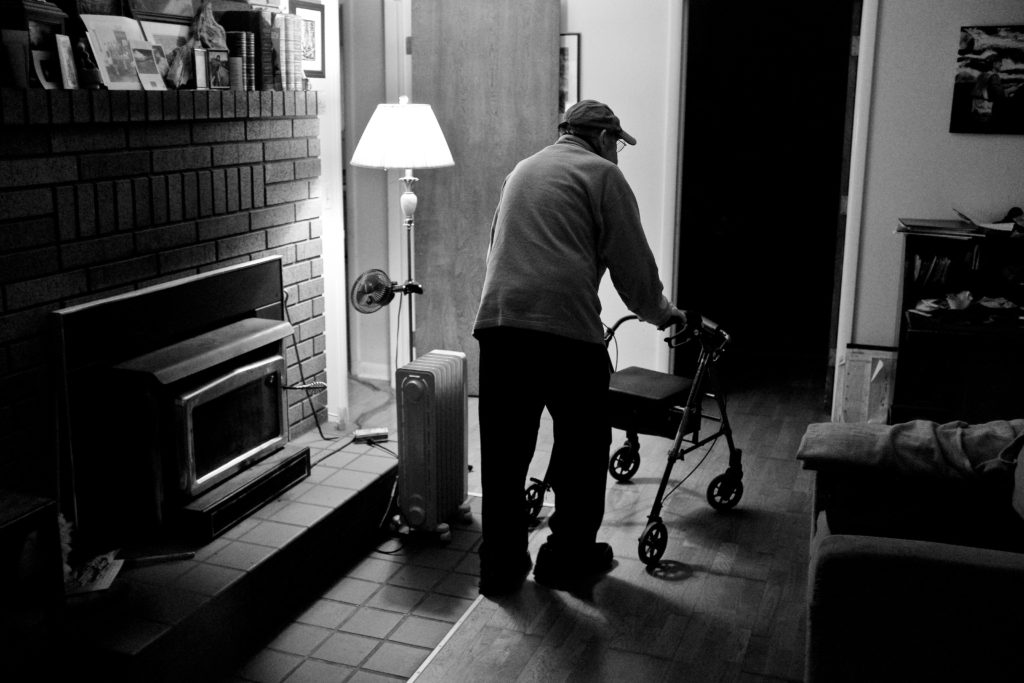
Always fiercely independent, even in his last weeks John Bauguess wanted most to return to his longtime Dexter home, to which he made his last visit on Dec. 30, 2019; photo by Paul Carter

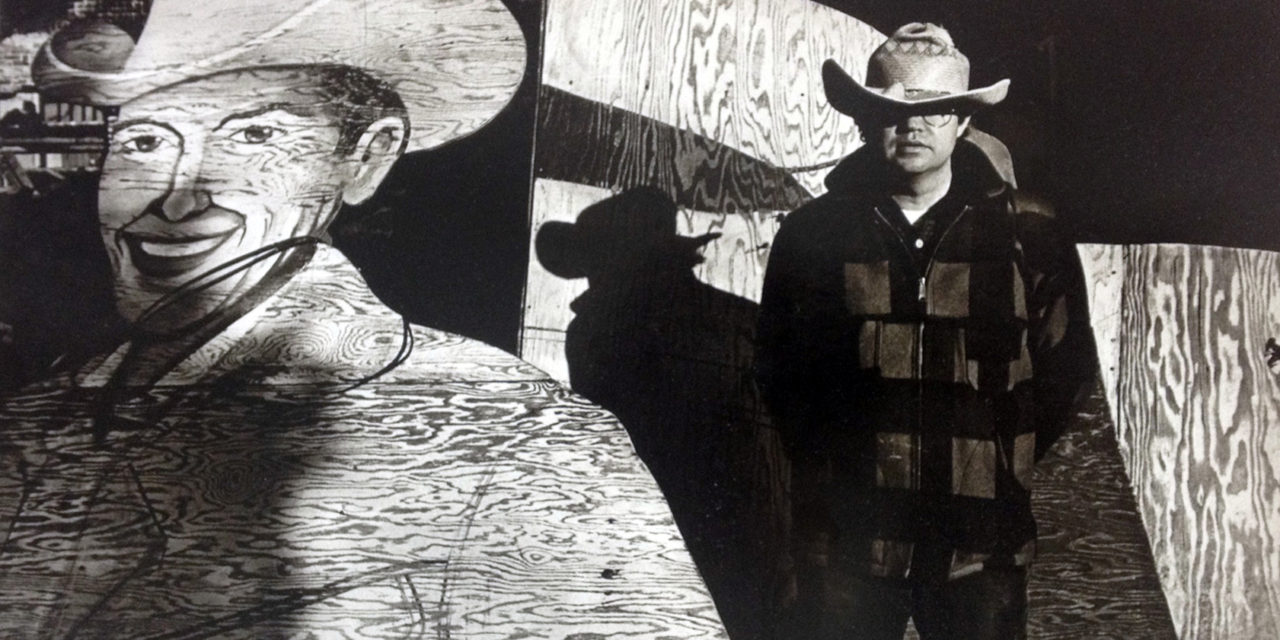
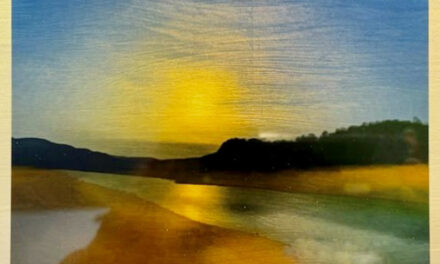

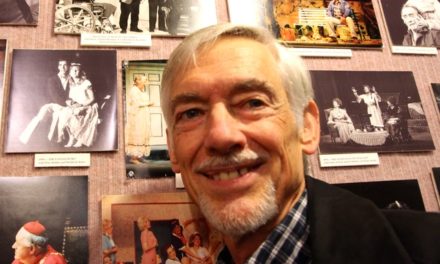
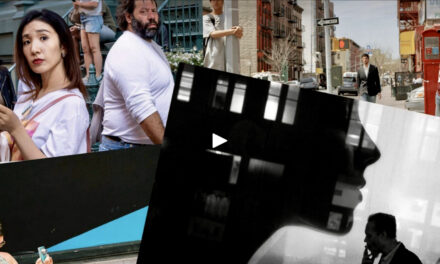







Excellent article on John Bauguess. Many thanks, Gary Tepfer
Thank you for writing your moving article and including photos of John in his favorite place.
John was a wonderful person. I still remember the first time I saw his migrant worker series. Striking photographs with deep political meaning.
John and I kept in touch occasionally over the years. We’d talk about photography, politics and our moms. I sent a message a few months ago, just to check in.
I’m so sorry he suffered multiple health issues. He loved being in Dexter. A great loss of a special soul.
Thank you, Paul Carter, so much for this! John isn’t walking through our store door at Dot Dotson’s to talk photography with us or just say hi anymore. I’ll really miss you, John.
John, like his mother, had a life well lived. I miss hearing his interesting stories. He never repeated the same one twice. Thank you for the well written tribute to John.